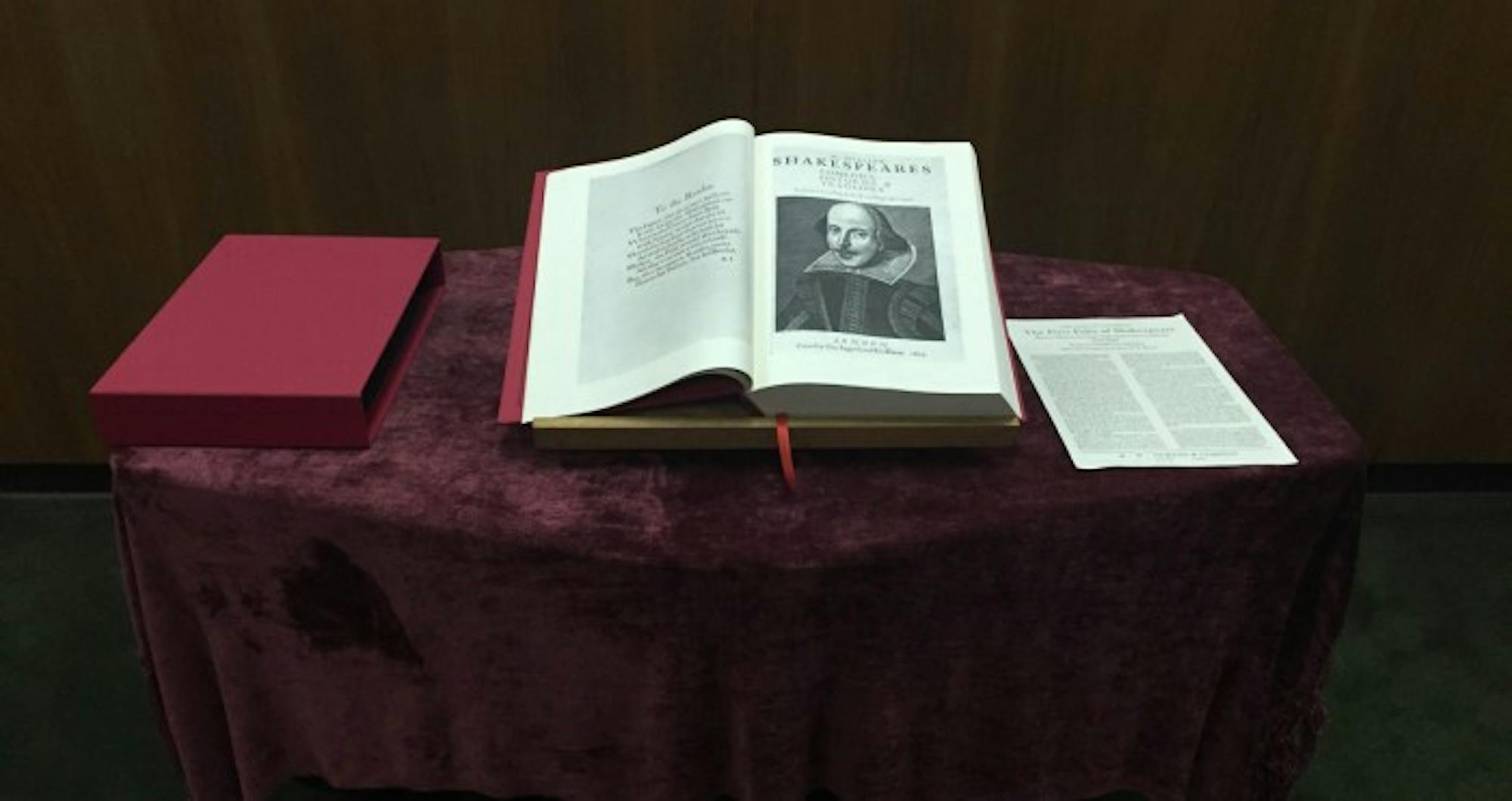On Friday, as part of the “Folio Friday” lecture series, Peter Holland, the McNeel Family Chair in Shakespeare Studies, spoke on impact of genre classification in the First Folio. The First Folio, currently on display in the Hesburgh Library, is Shakespeare’s first published collection of plays.
Holland began his talk with a discussion of the history and the importance of the First Folio.
“The “First Folio” was brought together by fellow actors in the Kingsmen [Shakespeare Company], John Heminges and Henry Condell in 1623,” he said. “It was the first appearance of, among others, 'Macbeth,' 'The Tempest,' 'Coriolanus' and 'Antony and Cleopatra,' 'Julius Caesar' and 'Twelfth Night.' It is a strikingly complete work, there are no solo authored Shakespeare plays that survive that are not in the collection.”
After giving this brief background, Holland moved into his discussion of the organization of the First Folio.
“The editors of the Shakespeare collection ... decided to go with organization by genre,” he said. “[They called it] Mr. William Shakespeare’s Comedies, Histories and Tragedies.”
These classifications though, according to Holland, prove too confusing to readers and scholars, “however Heminges and Condell thought they were arranging the plays, the words they used to define three genres ... are equally confusing."
Holland began his dissection of the genres by discussing Shakespeare’s histories.
“It is of course perfectly clear what [Heminges and Condell] took history to mean ... history means English history,” he said. “[They are] a line of plays are arranged in strict chronological order in terms of monarchs from 'King John' to 'King Henry VIII.'”
This classification of histories though leaves out plays such as "Julius Caesar" and "Antony and Cleopatra," which portray non-English history. Even plays which portray British nobility, but not English histories, such as "King Lear," are classified as tragedies and not histories.
The classification of comedies in the First Folio, Holland said, may be confusing to contemporary readers, “I don’t think it would have sense to Shakespeare to be concerned with whether [his comedies] were very funny, 'Hamlet' is full of funny moments.”
The classification of comedies is based on the classic Roman definition which defines a comedy as a story which is “turbulent in the beginning and tranquil at the end,” as opposed to a tragedy, which follows the opposite path.
According to Holland, these classifications help to dictate how the works are approached.
“Our awareness of genre impacts how we read, watch [or] listen to a Shakespeare play.” he said. “It’s not just then a matter of putting plays into convenient groupings, instead it’s a matter of how the nature of the plays themselves as Shakespeare wrote them, are engaged all the time with an awareness of what kind of genre expectations they are grappling with from beginning to end.”
Holland ended his talk discussing the ultimate impact of grouping Shakespeare’s plays into specific genres.
“Thinking about genre doesn’t make anything simpler, only evermore complicated in the ways that any group would,” he said. "[As for] the playfulness of playing with genre, there is no end, but there is of this talk.” 













